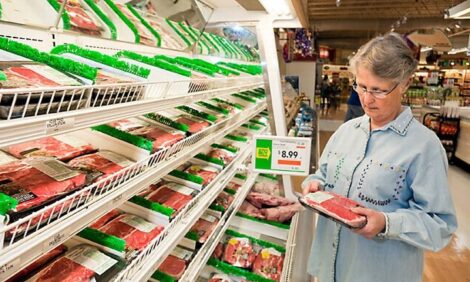



DDGS Quality Variation Important in Ration Formulation
CANADA - Gowans Feed Consulting is encouraging pork producers to develop procurement and formulation strategies to accommodate variations in the quality of dried distillers grains with solubles, writes Bruce Cochrane.Depending on time of year and location Canadian pork producers have reported saving anywhere from 50 cents to five dollars per pig by including dried distillers grains with solubles in rations.
Neil Campbell, a partner with Gowans Feed Consulting, says there is variation in the quality of DDGS between plants and within plants.
Neil Campbell-Gowans Feed Consulting
The variation can be caused by a number of differences in equipment and processes between plants.
There are differences in drying time, temperature, the addition the solubles back into the distillers grains and in some cases some of the plants are extracting fat out of the solubles and selling that into a corn oil market and so we have to be aware of where that's happening and what impact it's having on the nutrient value of the distillers grains.
Another one of the biggest concerns when it comes to feeding pigs is variation in digestible amino acids and mycotoxin content of distillers grains.
I think those three variables, the mycotoxin content, the variation in fat content and the digestible amino acids, those are going to have the biggest impact on performance of animals.
I believe producers can manage this variation if they develop a procurement and formulation strategy for specific plants or groups of similar plants.
Producers and nutritionists should require some historical analysis from the plants they are considering and then review the content and the variation in the nutrients and amino acids and mycotoxins and determine the comparable value of the distillers grains between different plants and then they should build in a regular sampling and nutrient analysis schedule at the mill to monitor the consistency of the nutrients on an ongoing basis and then adjust their feeding programme accordingly.
Mr Campbell suggests producers will need to find ways to incorporate more DDGS and other co-products into their feeding programmes to maintain cost competitiveness.








